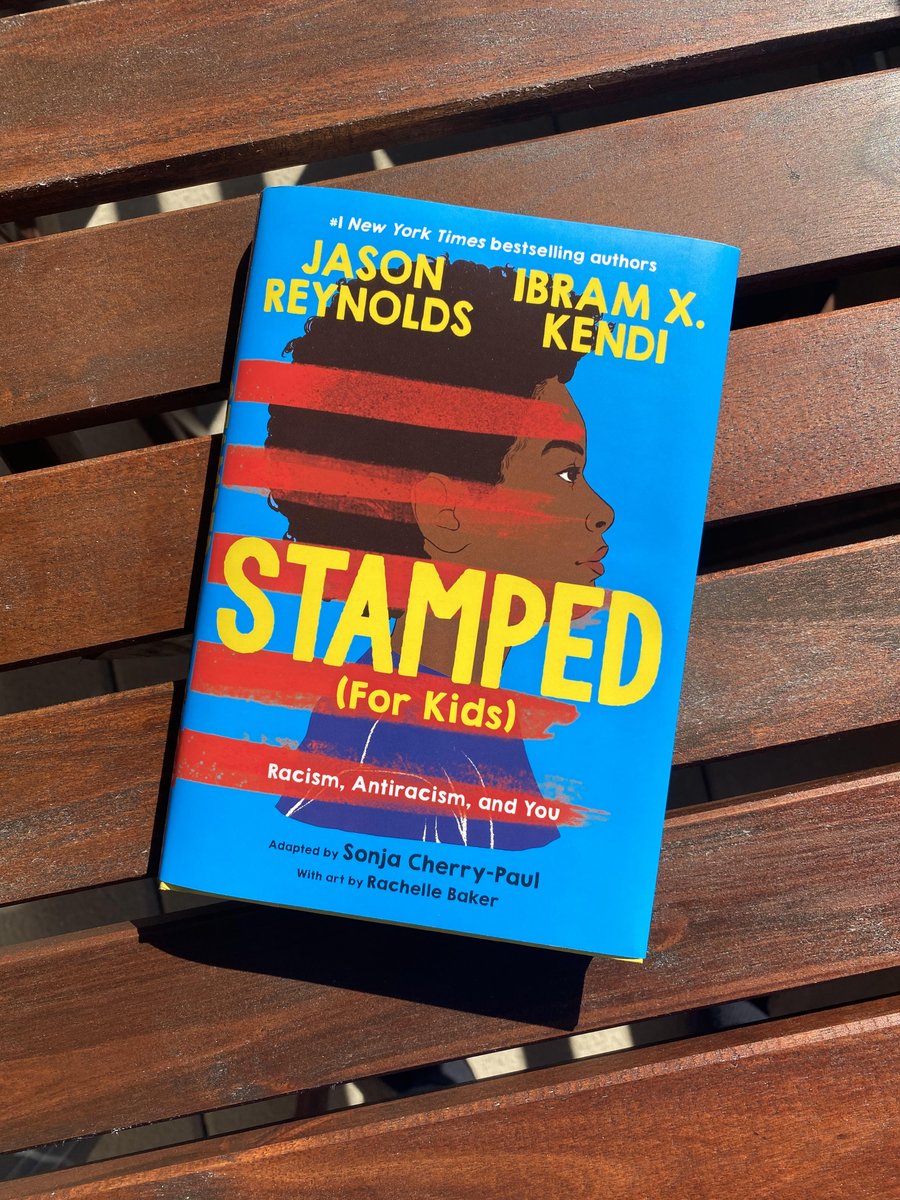
Presenting #StampedforKids, an introduction to the history of racist and antiracist ideas for middle graders.
Brilliantly adapted by @SonjaCherryPaul.
Beautiful art by @thelittleanimal.
#StampedforKids is out today! Shouts @JasonReynolds83! 1/5
bookshop.org/books/stamped-…
Brilliantly adapted by @SonjaCherryPaul.
Beautiful art by @thelittleanimal.
#StampedforKids is out today! Shouts @JasonReynolds83! 1/5
bookshop.org/books/stamped-…

Our kids are trying to make sense of the different skin colors and cultures they see, and the racial inequity they see. They hear verbal and non-verbal messages that some certain groups are better or worse; that certain groups have less because they are less. 2/5 

These messages are harmful. We can’t protect our kids from these harmful messages by *not* talking to them about racism, by *not* telling them the truth about the nation’s past and present, by *not* actively talking to them about racial equality. 3/5
bookshop.org/books/stamped-…
bookshop.org/books/stamped-…
We can’t talk to our kids effectively without tools. And there may be no better tool to start these protective conversations than a book. I couldn’t be happier that a book like #StampedforKids is out in the world. 4/5
bookshop.org/books/stamped-…
bookshop.org/books/stamped-…

Thank you @agent_ayesha, Jason, @LisaYoskowitz and the entire team @LittleBrownYR, and especially Sonja and Rachelle. Thank you to the whole village. Book birthday! #StampedforKids 5/5
bookshop.org/books/stamped-…
bookshop.org/books/stamped-…

*that certain
• • •
Missing some Tweet in this thread? You can try to
force a refresh




